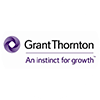Grant Thornton’s International Business Report (IBR) for H2 2021 reveals increased levels of overall economic optimism, as companies in most sectors anticipate an improved outlook moving forward.
The report analyses 10,000 surveys and 100 interviews from mid-market businesses around the world, delivering insights from all regions – including across Asia-Pacific and within Thailand.
It is important to note that the data for this IBR was collected prior to the discovery and spread of the Omicron variant. Nevertheless, according to analysis from our audit firm in Thailand, the combination of growing vaccination rates and the apparently milder character of Omicron suggest that progress toward economic recovery may be possible in 2022, albeit after the current wave subsides.
Global trends
Among the key findings for Grant Thornton’s IBR H2 2021 is that economic optimism has been on the rise. Fully 70% of surveyed business leaders expressed optimism about the current 12-month period – up 20 percentage points from when the same question was asked a year earlier.
Ian Pascoe, CEO and Managing Partner at Grant Thornton in Thailand, points out that the high optimism numbers likely reflect the successful efforts by many businesses to adapt to the pandemic. “Whether it is cutting costs, restructuring internal operations, or optimising cash management, more businesses are rising to the challenge,” he said. “In fact, despite the ongoing supply chain disruptions, our latest IBR survey shows that 45% of respondents expect an increase in international exports over the next 12 months – that’s a 15pp increase from last year.”
Regional sentiment
Across Asia-Pacific, 69% of IBR survey respondents expressed a general sense of optimism. Inflation remains a notable concern, however, with 56% anticipating an increase in energy costs. Singapore has already put its 2022 inflation estimate at 3.8%, with Thailand forecasting 3% – a rate higher than at any point in the past decade.
Tanva Mahitivanichcha, Tax & Legal Partner at Grant Thornton in Thailand, offers some guidance for businesses during a period of inflation. “Be proactive. Talk to your suppliers, lock in long-term, fixed price contracts rather than inflation rate adjustments. Remove unnecessary business costs. Make an extra effort to retain your customers. These moves will help your business get ahead of the curve,” he said.
Insights for Thailand
Although the IBR measures overall business optimism in Thailand at 60%, feelings of economic uncertainty are at an even higher level (74%). Clear and positive indications of continued government support in 2022 can ease these concerns, as businesses look for recovery opportunities.
Among the other findings for businesses in Thailand: 74% anticipate increased profitability; 63% plan to expand their R&D programmes; 63% forecast a rise in exports; and 52% expect to grow their workforce. 46% have begun outsourcing since the start of the pandemic began, and another 6% plan to outsource in 2022.
Our audit firm in Thailand recommends the recruitment of skilled personnel for core business areas, paired with a strategy of outsourcing tasks in non-core areas. This combination can make companies simultaneously more durable and more agile moving forward.
For support and guidance during the post-pandemic recovery, contact Grant Thornton today.



